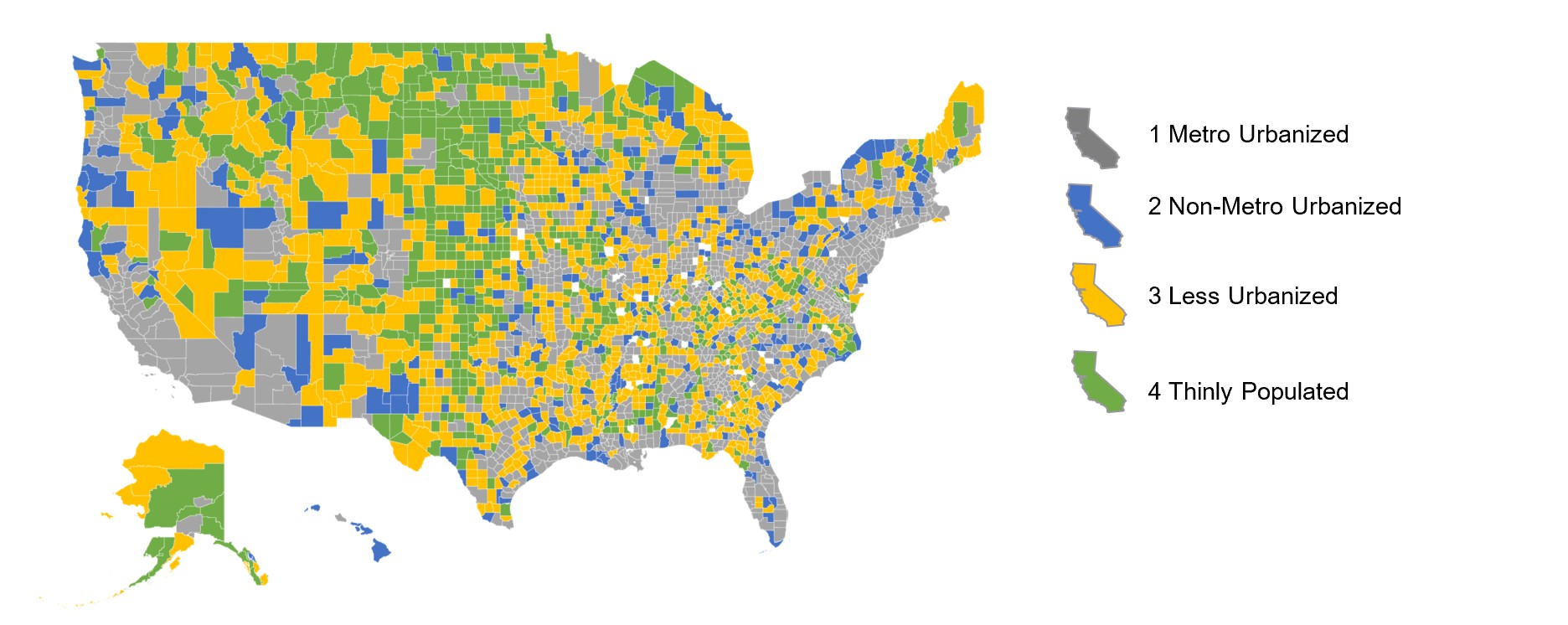Session Information
Session Type: Poster Session C
Session Time: 10:30AM-12:30PM
Background/Purpose: Environmental factors such as smoking, pollutants, diet, and geography as well as sex, race/ethnicity, and genetics have been linked with rheumatoid arthritis (RA) pathogenesis and outcomes. However, most studies assess individual exposures. The U.S. Environmental Protection Agency’s Environmental Quality Index (EQI) provides a multi-domain composite county-level measure of environmental quality by combining 219 variables across five domains: air, water, land, built, and socio-demographic. This offers a unique opportunity to evaluate these cumulative environmental risks on RA mortality. Using this tool, we aimed to investigate the association between EQI domains and the odds of RA-related death versus all-cause mortality, adjusting for urbanization, race/ethnicity, sex, and age.
Methods: We analyzed the individual U.S. death certificate data from 2011 to 2015 using the CDC Multiple Cause of Death dataset. RA deaths were identified using ICD-10 codes for seropositive and seronegative RA. EQI scores for 2006-2010 were linked to decedents’ counties using FIPS (Federal Information Processing Standard) codes. Two multivariable logistic regression models were constructed: one assessing total EQI, and another examining individual EQI domains. Both models adjusted for Rural-Urban Continuum Codes (RUCC), race/ethnicity, sex, and age. Interaction terms evaluated effect modification, and stratified analyses were conducted by race/ethnicity and RUCC.
Results: Among 12,970,917 total deaths, 43,757 were attributed to RA. Total EQI was not significantly associated with RA mortality. However, individual domains showed significant associations with RA death odds: increased odds: poorer water (OR 1.13; 95% CI, 1.12–1.14), land (1.05; 95% CI, 1.04–1.06), and socio-demographic (1.05; 95% CI, 1.04–1.06) quality; decreased odds: poorer air (0.95; 95% CI, 0.94–0.96) and built environment (0.91; 95% CI, 0.90–0.92) quality (all p < 0.001). Additionally, RA mortality was higher in nonmetro-urbanized areas (OR 1.09; 95% CI, 1.05–1.13) compared to metro areas. Significant interactions were found between the five EQI domains and race/ethnicity and RUCC. Stratified analyses revealed differential associations across racial/ethnic groups and urbanization levels. For example, poor water quality was significantly associated with RA death in Hispanic individuals in metro and less-urbanized areas but not in others.
Conclusion: Environmental quality domains independently associate with RA mortality, with variable effects across urbanization and racial/ethnic groups. These findings highlight the importance of addressing environmental and healthcare access disparities to reduce RA-related mortality in vulnerable populations.
 Figure 1. Rural-Urban Continuum Codes (RUCC) by County
Figure 1. Rural-Urban Continuum Codes (RUCC) by County
Counties were grouped into four urbanization categories following EPA methodology. This map illustrates the spatial distribution of RUCC designations across the U.S., providing geographic context for environmental quality and RA mortality patterns.
To cite this abstract in AMA style:
Sharma R, Yen E, Singh R. Exploring the Association Between Environmental Quality Index and Rheumatoid Arthritis Mortality in the United States [abstract]. Arthritis Rheumatol. 2025; 77 (suppl 9). https://acrabstracts.org/abstract/exploring-the-association-between-environmental-quality-index-and-rheumatoid-arthritis-mortality-in-the-united-states/. Accessed .« Back to ACR Convergence 2025
ACR Meeting Abstracts - https://acrabstracts.org/abstract/exploring-the-association-between-environmental-quality-index-and-rheumatoid-arthritis-mortality-in-the-united-states/
